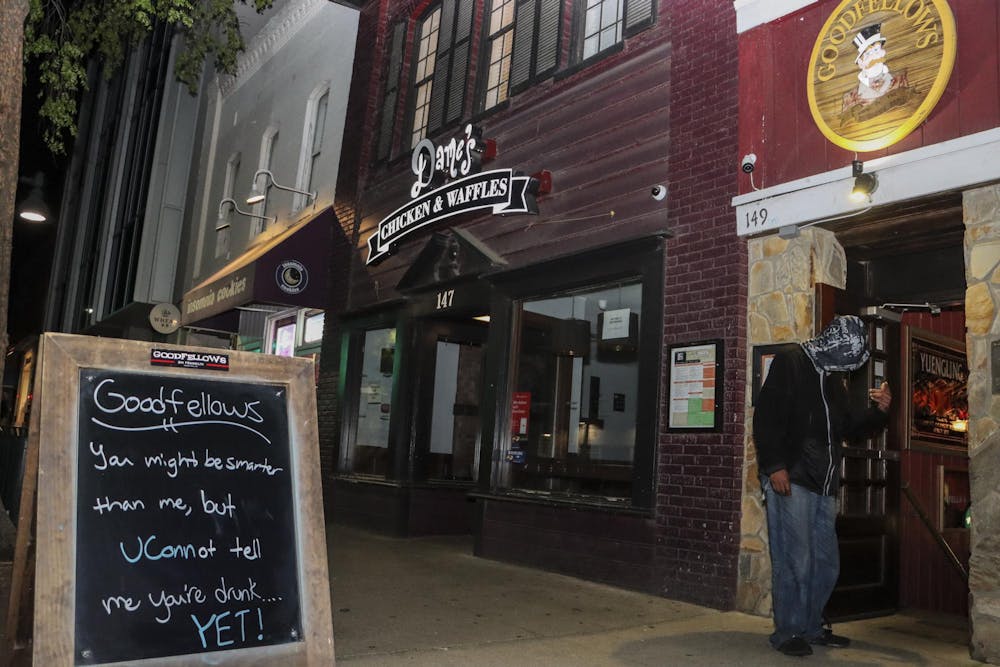It is no secret that a large portion of students drink in college. Research shows that about 80 percent of college students consume alcohol to some extent. It is an activity that brings people together as it promotes social interaction and is viewed as a normal occurrence that is a part of the “college experience.”
I am 21 years old, and I drink alcohol. Drinking has played a role in my experience at UNC, and it is typical for my friends and I to go out drinking on the weekends. Drinking is a common activity that Americans frequently engage in, as 67.4 percent of adults aged 18 and older reported drinking in the past year, but drinking in college is a completely different ball game.
The term “blacking out” has become an extensive part of the college experience, meaning drinking so much that you cannot recall what happened the night before. It is caused by a rapid increase in alcohol consumption. Blackouts usually begin when a person's blood alcohol concentration — the percentage of alcohol in a person’s bloodstream — is at 0.16 percent, which is twice the legal driving limit.
The normalcy of blacking out can be seen in a 2012 study about college blackouts, where 50 percent of students reported having alcohol-induced blackouts in the past year. The frequency and normalcy of blacking out has downplayed the issues that come with it and has turned into something people joke about and gloss over.
According to a blackout and brain study by the National Library in 2003, alcohol interferes with the ability to form new long-term memories. This is because alcohol disrupts the hippocampus, a brain region that plays an important role in forming new memories.
Drinking large amounts of alcohol in a short period of time, known as binge drinking, suppresses the memory receptors in your brain and can cause them to slow down or shut down entirely. Once memory receptors shut down they are unable to form new memories. When people black out, they lose the ability to make new memories, which is why they can’t remember what happened the night before. There is no memory to recall because no memory was ever formed.
Aside from memory loss, drinking too much alcohol in the moment can lead to physical injuries, harm to yourself or others and participation in other activities one usually would avoid if they were sober.
Alcohol use is prevalent at UNC. There were 580 alcohol violations in dormitories reported to Chapel Hill Police Department between October 2015 and October 2022. Additionally, Chapel Hill has a plethora of bars and breweries where anyone of legal drinking age can go get a drink.
Throughout my experience in college, overconsumption of alcohol and blacking out has become more common. The drinking culture at UNC, and in college in general, has become less about socialization and more about the act of getting drunk. Alcohol should not be the main motivator of going out nor should it be the primary goal to accomplish every weekend.




